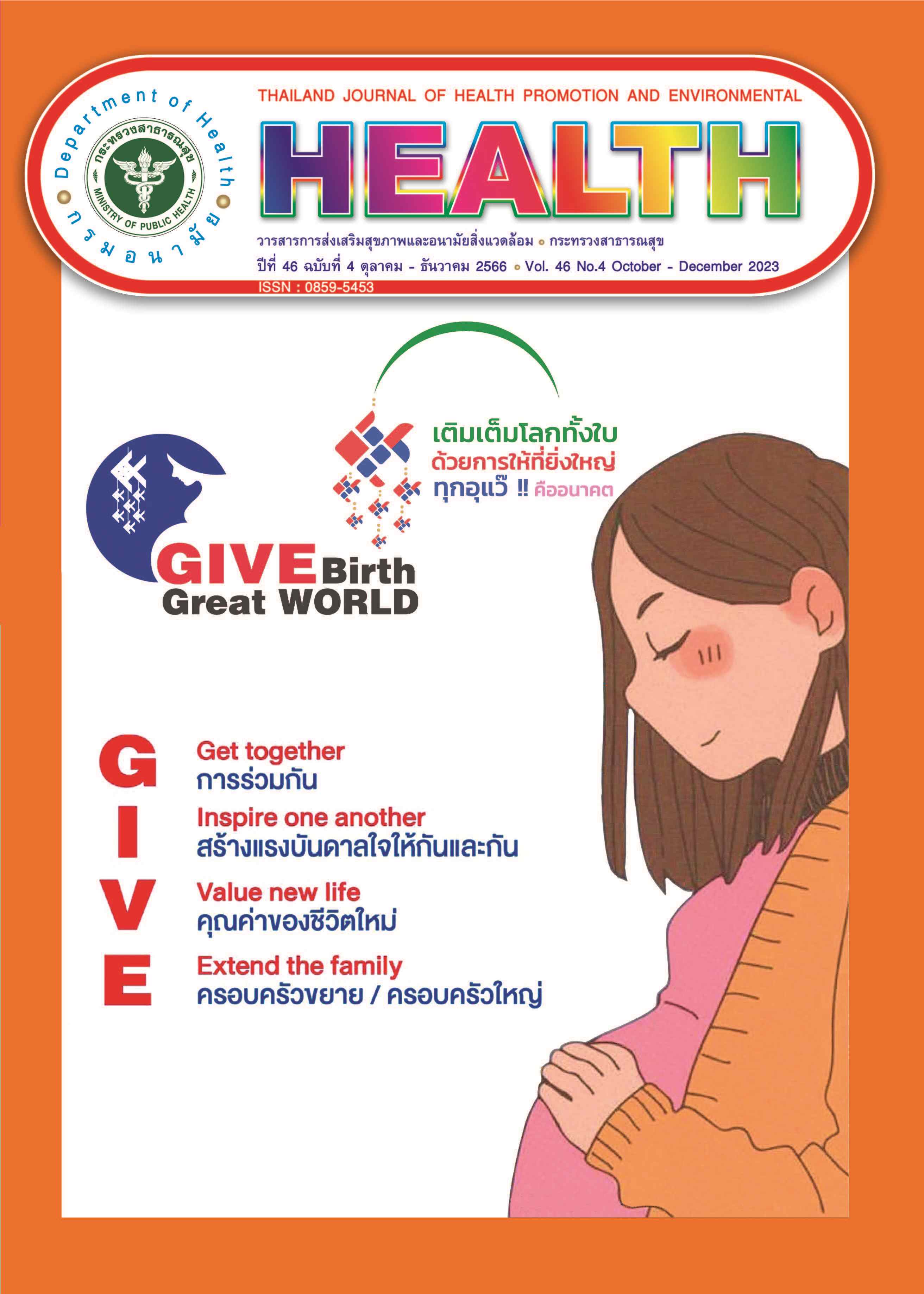The Effectiveness of Early Childhood Developmental Assessment Program
Keywords:
Effectiveness, Early Childhood DevelopmentAbstract
The purposes of this research were analyzing the effectiveness of early childhood developmental assessment program by comparing the child's development before and after using the program. This research was a quasi-experimental study. The experimental group used early childhood developmental assessment program and the control group received the developmental surveillance and promotion manual (DSPM). Sample of 104 (52 experimental group and 52 control group) was collected by interviewing the caregivers' general information, evaluate satisfaction with using the early childhood development assessment program, child development was examined with DSPM and Denver II tools 3 times before starting to use the program, follow-up at 3 months and 6 months. Data were also analyzed by frequency distribution, percentage, mean standard deviation and generalized estimating equation (GEE). The results revealed that satisfaction in the program had average score 4.67. The early childhood in the experimental group showed more normal development than the control group. Children raised from caregivers who used program had 4.0 times more normal development than children who were raised from caregivers who did not use program, 95%CI 1.26 – 7.14, P value 0.003 by Denver II tool. Children raised from caregivers who used program had 3.4 times more normal development than children who were raised from caregivers who did not use program, 95%CI 1.44 – 5.02, P value 0.008 by DSPM tool. Conclusion was the early childhood developmental assessment program had effectiveness if caregivers use it to promote and surveillance the development of children which can result in increased early childhood normal development. The important activities were assessment of childhood development using this program of caregiver before the day of developmental examination and individual data return. If the caregivers see the benefits of surveillance and promotion child development will learn and adjust behavior in surveillance and promotion child development and solving that problem until it has good results for early childhood. In order to solve and prevent problems in the long term that are continuous and sustainable.
Downloads
Published
Issue
Section
License
Copyright (c) 2024 Thailand journal of Health Promotion and Environmental Health

This work is licensed under a Creative Commons Attribution-NonCommercial-NoDerivatives 4.0 International License.

